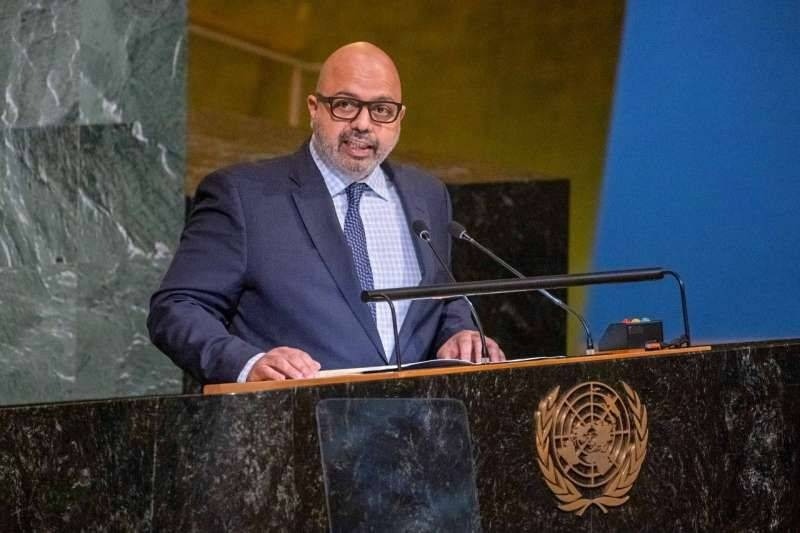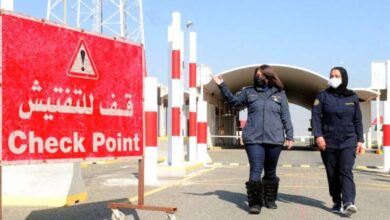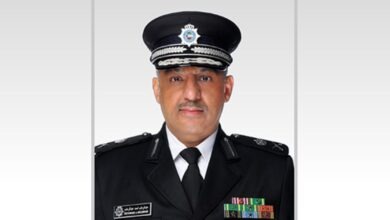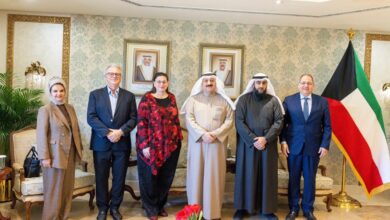Kuwait’s UN Representative stresses urgent need for reform in UN system

Kuwait’s Permanent Representative to the United Nations, Ambassador Tareq Al-Banai emphasized on Thursday the urgent need for reform within the UN system to ensure it can adapt to global developments in light of the growing challenges facing the world.
In a statement to KUNA on the occasion of United Nations Day on October 24, Ambassador Al-Banai highlighted the UN’s achievements and its contributions to fostering peace, security, and international cooperation.
Al-Bannai reaffirmed Kuwait’s belief in the importance of enhancing the efficiency of the UN system and improving its operational structures to ensure broader and more equitable participation among member states.
He stressed the need for greater transparency in decision-making and quicker responses to global crises, and emphasized the importance of empowering developing nations and giving them a more significant role in shaping international decisions, while also reaffirming the need to adhere to the principles and objectives of the UN Charter in maintaining international peace and security.
Al-Banai reiterated Kuwait’s unwavering support for the UN’s efforts in addressing various global and regional challenges, including the implementation of the 2030 Agenda for Sustainable Development and its 17 goals.
He also affirmed Kuwait’s commitment to advancing international peace and security, supporting the UN’s ongoing efforts to strengthen international cooperation, resolve conflicts through peaceful means, and support humanitarian activities aimed at alleviating the suffering of vulnerable populations worldwide.
Ambassador Al-Banai highlighted Kuwait’s deep commitment to the UN’s principles, emphasizing its active contributions to promoting international dialogue, stability, and sustainable development for future generations.
The ambassador also reiterated the longstanding cooperative relationship between Kuwait and the UN, which spans over 60 years, praising the tireless efforts of UN Secretary-General Antonio Guterres in advancing the UN’s goals and enhancing global cooperation.
Al-Banai renewed Kuwait’s full support for UN personnel, particularly those who have lost their lives in humanitarian service, acknowledging them as the cornerstone of multilateral international efforts.
United Nations Day commemorates the anniversary of the UN Charter’s entry into force in 1945, with its ratification by a majority of signatories, including the five permanent members of the Security Council, the UN was officially established.
Member states and NGOs observe the day through local and international events addressing global issues such as human rights, equality, and environmental protection, in addition to holding conferences and workshops aimed at promoting the UN’s role and highlighting its goals.
The UN uses this day to remind the international community of its objectives, which include maintaining international peace and security through diplomacy and peacekeeping, promoting human rights by upholding principles of justice and equality, and eradicating poverty.
Some 79 years ago the United Nations was established as a global organization geared towards international cooperation, security, and development.
During the celebration, the UN would be marking all of the achievements since establishment in 1945, but also addressing current challenges whether political, economic, or related to security and peace worldwide with an eye always set on the future.
The UN was erected following WWII by 51 founding nations who signed the UN statute, which has organized affairs since then. The member states and NGOs would be celebrating the UN Day via variety of functions addressing various issues including human rights, gender equality, environment protection, and more.
While celebrations are important, the UN would also be addressing some of the crucial issues of the world namely, achieving its 2030 Sustainable Development Goals (SDGs) as well as trying to find solutions to most important challenges whether manmade or naturally occurring.
Though the UN succeeded in ending some conflicts via diplomacy and also helped overcome some manmade disasters, it still needs to address the needs of billions around the globe affected by various troubling situations such as war, disease, and other alarming developments.
The war in the Middle East, battling climate change, addressing hunger and disease, and ending poverty as but a few challenges that face the world in which the UN has an important role to solve and end as a collective of human cooperation and collaboration.
Source: KUNA












